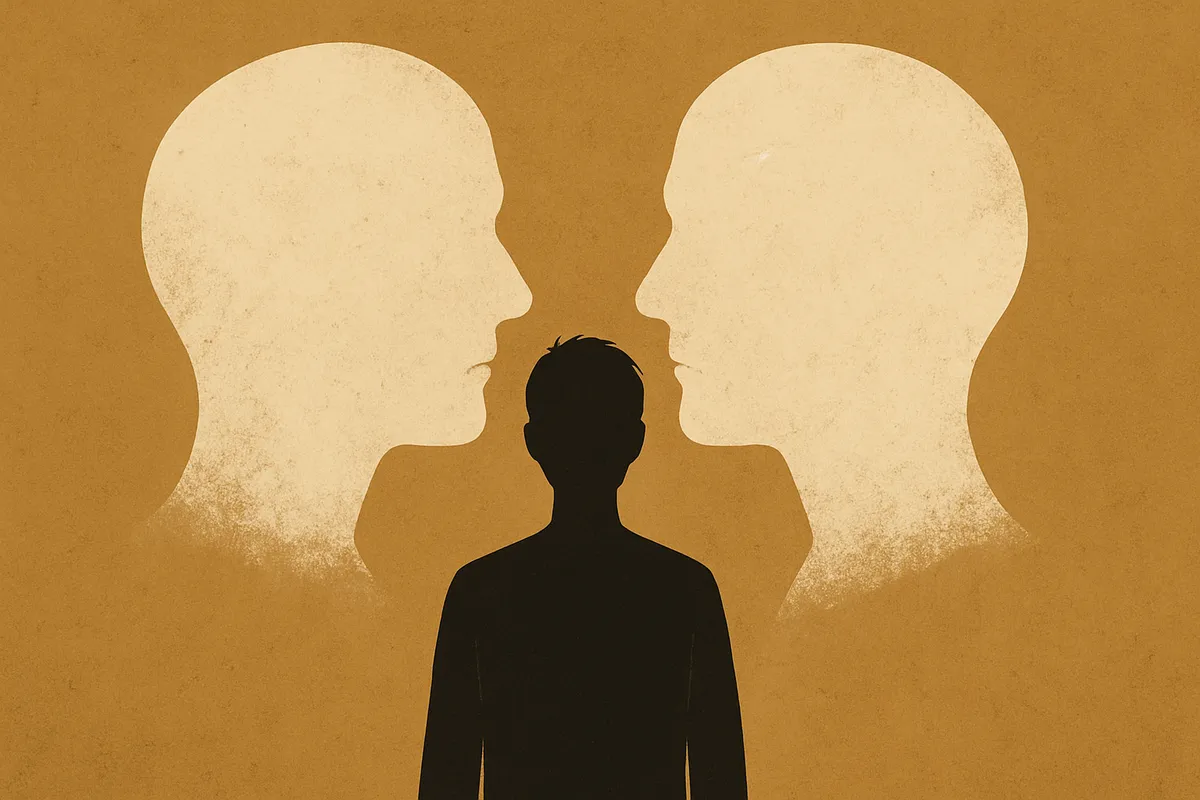Not a Subtype, Not a Symptom: Why Collapsing Autism into Schizophrenia Is Narrative Violence
 A recent piece in Managed Healthcare Executive spotlights psychiatrist Dr. Brian Miller, who argues that autism should be reabsorbed into the schizophrenia spectrum. He calls this a "rediscovery" of an older psychiatric model — one that predates the DSM-III split of these two diagnoses in 1980.
A recent piece in Managed Healthcare Executive spotlights psychiatrist Dr. Brian Miller, who argues that autism should be reabsorbed into the schizophrenia spectrum. He calls this a "rediscovery" of an older psychiatric model — one that predates the DSM-III split of these two diagnoses in 1980.
At first glance, this might seem like a historical curiosity. A nod to psychiatric genealogy. But make no mistake: what Dr. Miller is proposing is not an act of integration. It's an act of erasure.
Let’s be clear: autistic people exist. As a neurotype. As a culture. As a community with shared experiences of marginalization, resistance and self-definition. To suggest that autism is merely an "attenuated form" or "feature" of schizophrenia isn’t just clinically debatable — it’s narratively violent.
That language may sound sharp — but it reflects the lived fear of many autistic people that clinical redefinitions often precede policy shifts. And history shows we’re not imagining that.
Psychiatry Is Not a Neutral Archive
Yes, Eugen Bleuler coined the term "autism" in 1911 to describe a symptom of schizophrenia. But Bleuler also operated in a time when institutionalization was the norm, eugenics was science and disabled people were warehoused rather than supported. Reviving his framework without confronting that legacy isn’t rediscovery. It’s regression.
Dr. Miller wants to "reintegrate" autism and schizophrenia to improve treatment, especially for people with so-called "treatment-resistant" symptoms.
But what treatments are implied? And what risks emerge when autism is reframed in proximity to psychosis — especially in systems that still over-rely on control-based models of care?
When autistic people are reabsorbed into the schizophrenia frame — conceptually or diagnostically — we risk losing clarity, autonomy, and the narrative ground we’ve fought to claim.
The Diagnostic Convenience of Collapse
To clinicians, this merging might sound tidy. One spectrum. Shared genetics. Overlapping traits.
But for those of us who live at the sharp end of diagnostic labeling, this isn’t tidy at all. It’s dangerous.
It risks:
- Reclassifying autistic traits as psychosis-adjacent
- Undermining identity-based supports
- Justifying involuntary treatment
- Collapsing two distinct modes of experience for the sake of clinical expedience
The article frames this proposal as a return to something foundational. But autism doesn’t belong to Bleuler. And it doesn’t belong to psychiatry alone. It belongs to us — the people who live it, shape it and refuse to be reduced by it.
Where Are the Autistic Voices?
Not once in this piece are autistic people quoted, cited or consulted.
We are treated as artifacts, not interlocutors. As case studies, not stakeholders.
This is not an oversight. It’s a pattern.
When clinicians talk about autism without autistic people, the result is always the same: disempowerment dressed up as scientific curiosity.
If you’re trying to "rediscover" autism, maybe start by listening to those who live it. You’ll find we’re not confused about who we are.
The Stakes Are Real
Let’s not pretend this is an abstract debate.
Reframing autism as schizophrenia-lite doesn’t just change diagnostic categories. It affects:
- Who gets access to neurodiversity-affirming care
- How insurance codes are written
- How schools, courts, and hospitals treat us
- Whether we are seen as people to support, or patients to stabilize
This isn’t a taxonomic exercise. It’s a power move — and it comes at our expense.
A Different Kind of Rediscovery
If you want to rediscover something, try this:
- Rediscover autistic autonomy
- Rediscover participatory research
- Rediscover frameworks that don’t treat difference as deviation
History doesn’t need to repeat itself. But it will — unless we push back.
Autism is not a prodrome. Not a subtype. Not a symptom to fold into another diagnosis because it makes the charts easier.
We are a people. And we are not yours to reclassify.